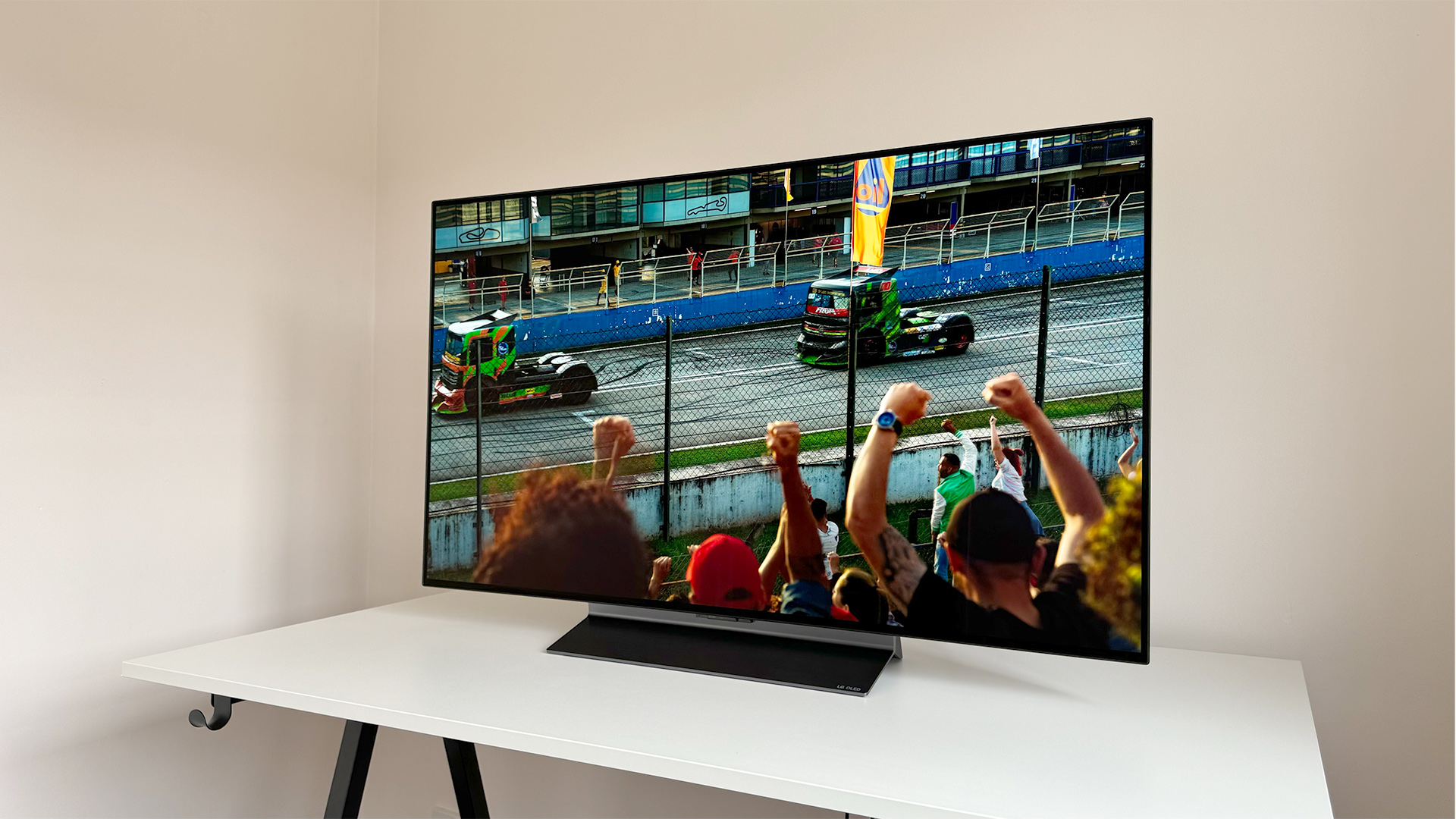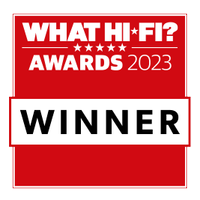What Hi-Fi? Verdict
It’s not much of a step forward but it didn’t need to be – the C3 is the best 48-inch TV you can buy
Pros
- +
Crisp, contrasty yet balanced picture
- +
Superb gaming specs
- +
Very user-friendly
Cons
- -
Dull sound
- -
Only slightly better than the C2
Why you can trust What Hi-Fi?
As many will already be well aware, the C3 is the latest in LG’s long-running and stonkingly popular C-series of OLED TVs. That popularity is well-earned: LG’s C-series has been a near-perfect intersection of performance, features and price for years, and not just compared with other LG OLEDs, but with TVs in general. At this stage, it’s a bit of a living legend.
That said, the C3 range hasn’t been as universally well-received as many would expect. A combination of higher prices than last year’s equivalents, a lack of meaningful upgrades and levelled-up competition led to the 65-inch C3 receiving an uncharacteristically low (by LG C-series standards) four-star rating in our review. The 42-inch C3, on the other hand, got the full five stars, not because it was a massive upgrade on the TV it replaced, but because the price increase was smaller than for the 65-inch version and because no extraordinarily good rivals had materialised.
All of which brings us to today’s review of the 48-inch LG C3: will it follow in the footsteps of its larger or smaller sibling?
Price
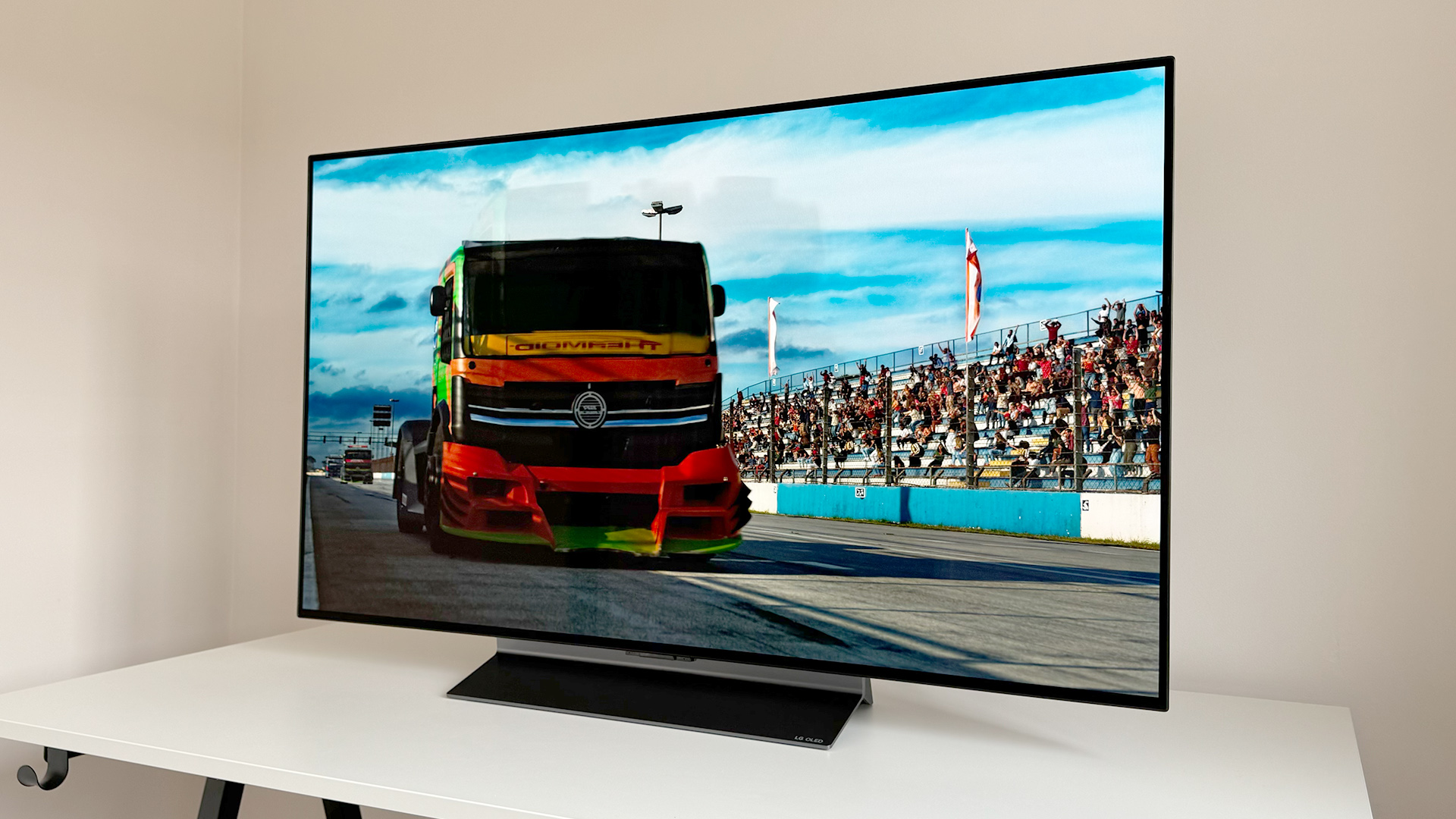
The 48-inch LG C3 launched at £1600 / $1500 / AU$2899, an increase of £200 / $100 on the C2's UK and US launch prices respectively, while Australian prices remained largely unchanged. The increases, for the UK in particular, would have been an issue at the time, but the TV has been heavily discounted since launch and is now available for the same sort of money that the C2 was at a similar time in its life.
At this stage, it also looks like very good value next to its rivals. The 48-inch Sony A90K is considerably more expensive despite being a year older, and even the 50-inch Samsung QN90C, which is a QLED rather than an OLED, is currently priced higher than the LG C3.
In other words, price is not an obstacle to the 48-inch C3’s success.
Design
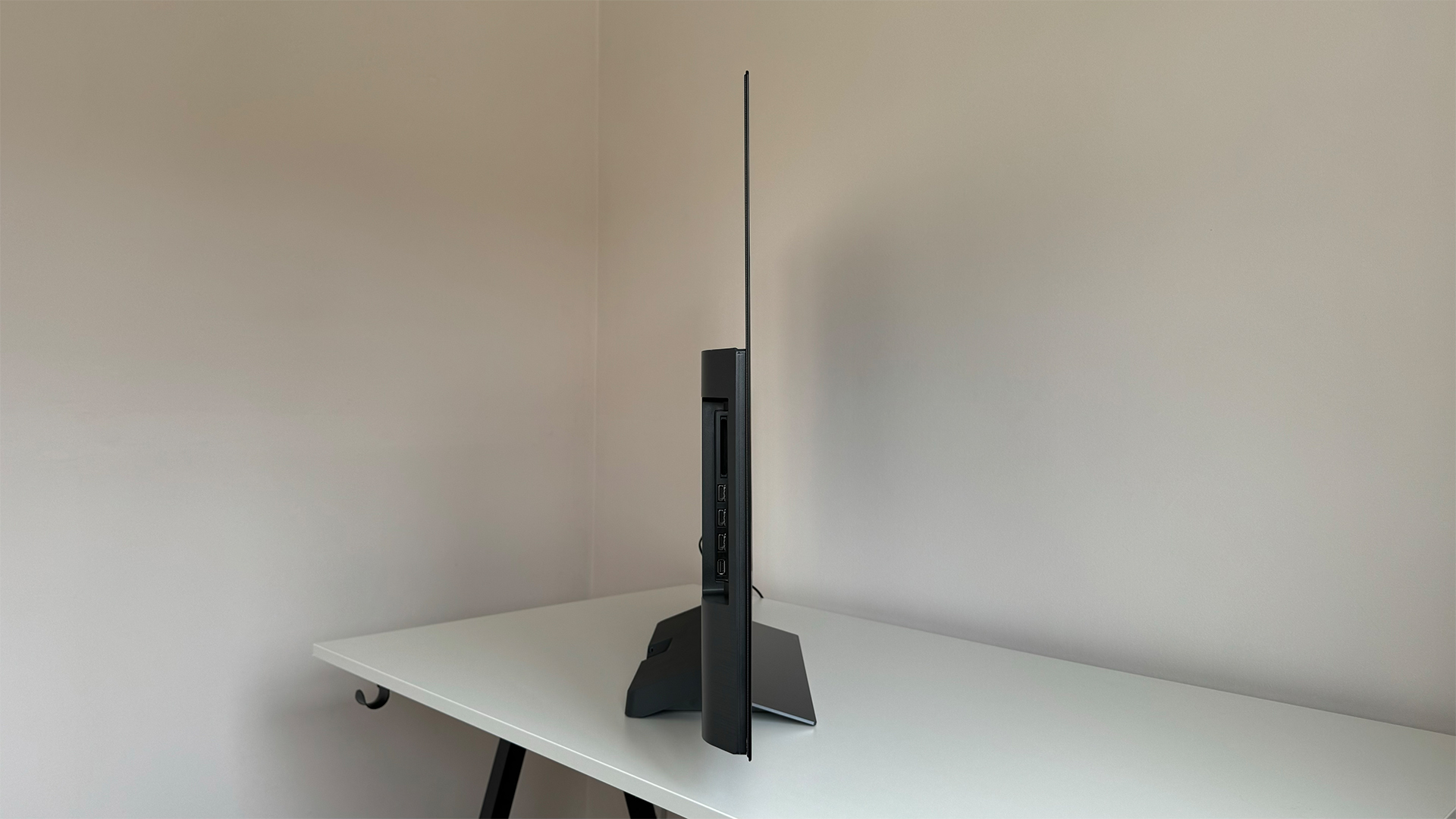
The 48-inch C3 differs in design to both the 42-inch model and the 65-inch version. So, unlike the 42-inch model, which has desktop-friendly feet, the 48-inch C3 has the same 47cm-wide pedestal stand as the larger models. This makes it relatively easy to find space for – although finding somewhere to put an accompanying soundbar is decidedly trickier.
And unlike the 65-inch model, which features an incredibly lightweight and minimalist chassis, only the top third of the 48-inch C3 is super-thin, with the bottom two-thirds being covered by plastic casework that takes the set’s overall thickness to 4.7cm – still fairly slim by modern TV standards.
All told, while the design hasn’t changed since last year, this is a smart-looking set with a decidedly premium feel.
Features
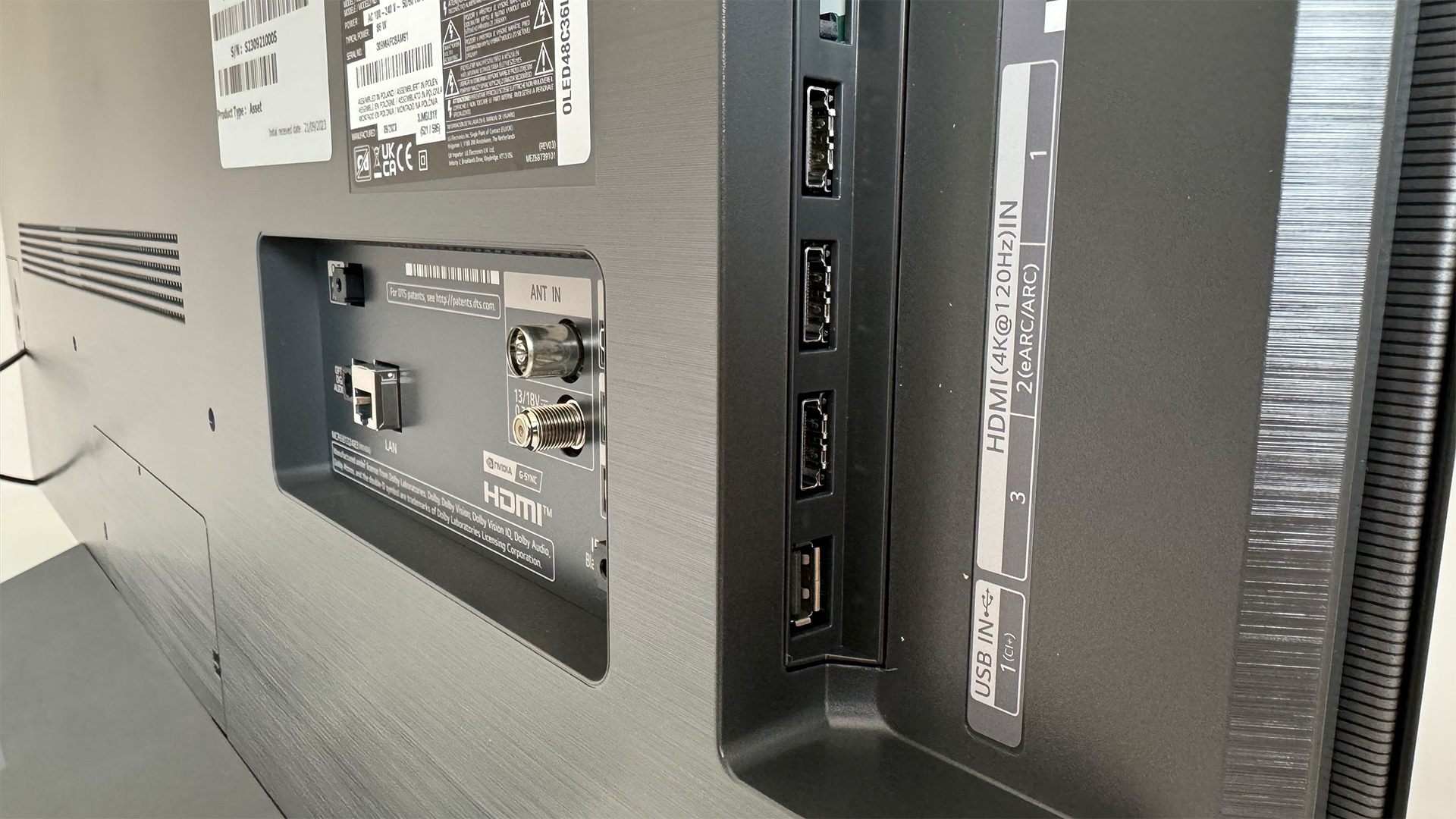
To put it plainly, there’s no better-specified TV available at this size. While neither MLA nor QD-OLED technology have made it below 55 inches yet, the C3 uses the best 48-inch OLED panel currently available from sister company LG Display. This panel can’t be pushed to go as bright as larger models can due to how tightly packed the OLEDs are, but this is the case for all OLEDs of this size and, as we’ll see, the 48-inch C3 goes plenty bright enough.
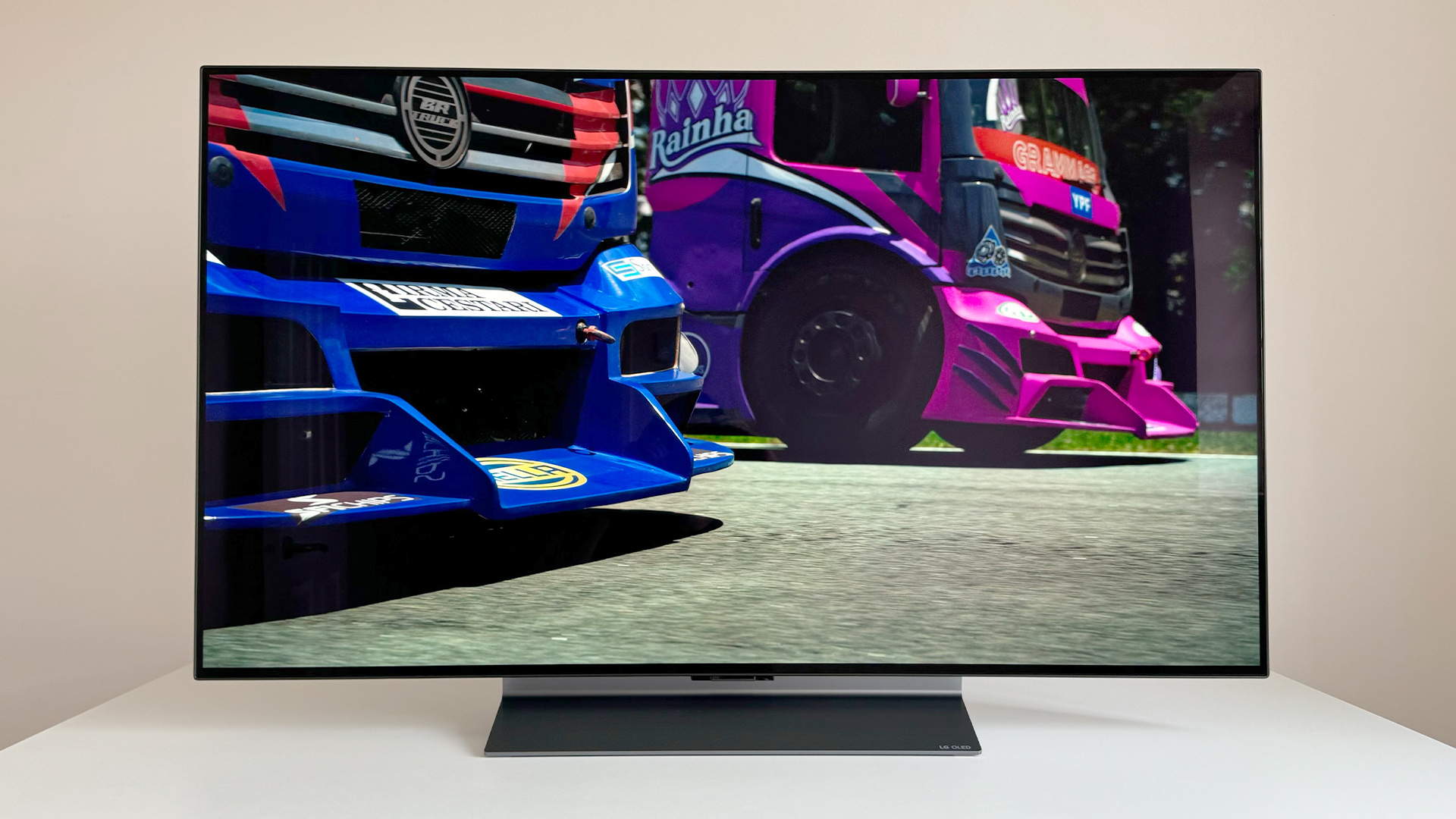
Screen size 48 inches (also available in 42in, 55in, 65in, 77in, 83in)
Type OLED
Backlight N/A
Resolution 4K
HDR formats HLG, HDR10, Dolby Vision
Operating system webOS 23
HDMI inputs x 4 (4 x 48Gbps HDMI 2.1)
Gaming features 4K/120Hz, VRR, ALLM, Dolby Vision game mode, HGiG
ARC/eARC eARC
Optical output? Yes
Dimensions (hwd, without stand) 62 x 107 x 4.7cm
The key TV battleground right now is gaming specs, and the 48-inch C3 very much has the high ground here. All four of its HDMI sockets are 48Gbps 2.1-spec affairs that support 4K/120Hz, VRR and ALLM, and it supports Dolby Vision gaming and has a really well-implemented HGiG setting that makes it a doddle to get more accurate HDR with many modern games.
Dolby Vision isn’t limited to gaming, of course, and the C3 also supports the common HDR10 and HLG formats of HDR. HDR10+ isn’t supported, which is a slight shame when you consider that brands such as Philips and Panasonic offer TVs that support both Dolby Vision and HDR10+ but, in reality, very few people will miss not having the latter and it’s certainly not as much of an omission as a lack of the former would be.
The TV’s webOS 23 operating system is just as app-packed as previous versions, and the way that every streaming service simply works as it should and delivers content in the formats that it should, right up to Dolby Vision and Dolby Atmos, is much rarer and more impressive than it probably should be. This year’s webOS has also had a welcome tidy-up that improves responsiveness – although we do feel that the layout could do with further refinement so that actual content appears on the first page. A reduction in the amount of space given over to advertising wouldn’t go amiss either.
Running the show is the Alpha 9 Gen 6 processor, new for 2023. The list of upgrades over the Alpha 9 Gen 5 chip it replaces includes AI Upscaling Pro, which is designed to reduce noise in upscaled sub-4K content without sacrificing intentional film grain; OLED Dynamic Tone Mapping Pro, which independently optimises the HDR delivery of 20,000 individual zones in each image (up from 5000 zones); Object Enhancer, which sharpens foreground elements for extra image depth and clarity; and HDR Expression Enhancer, which applies specific tone mapping to those foreground elements, again for extra three-dimensionality.
Picture
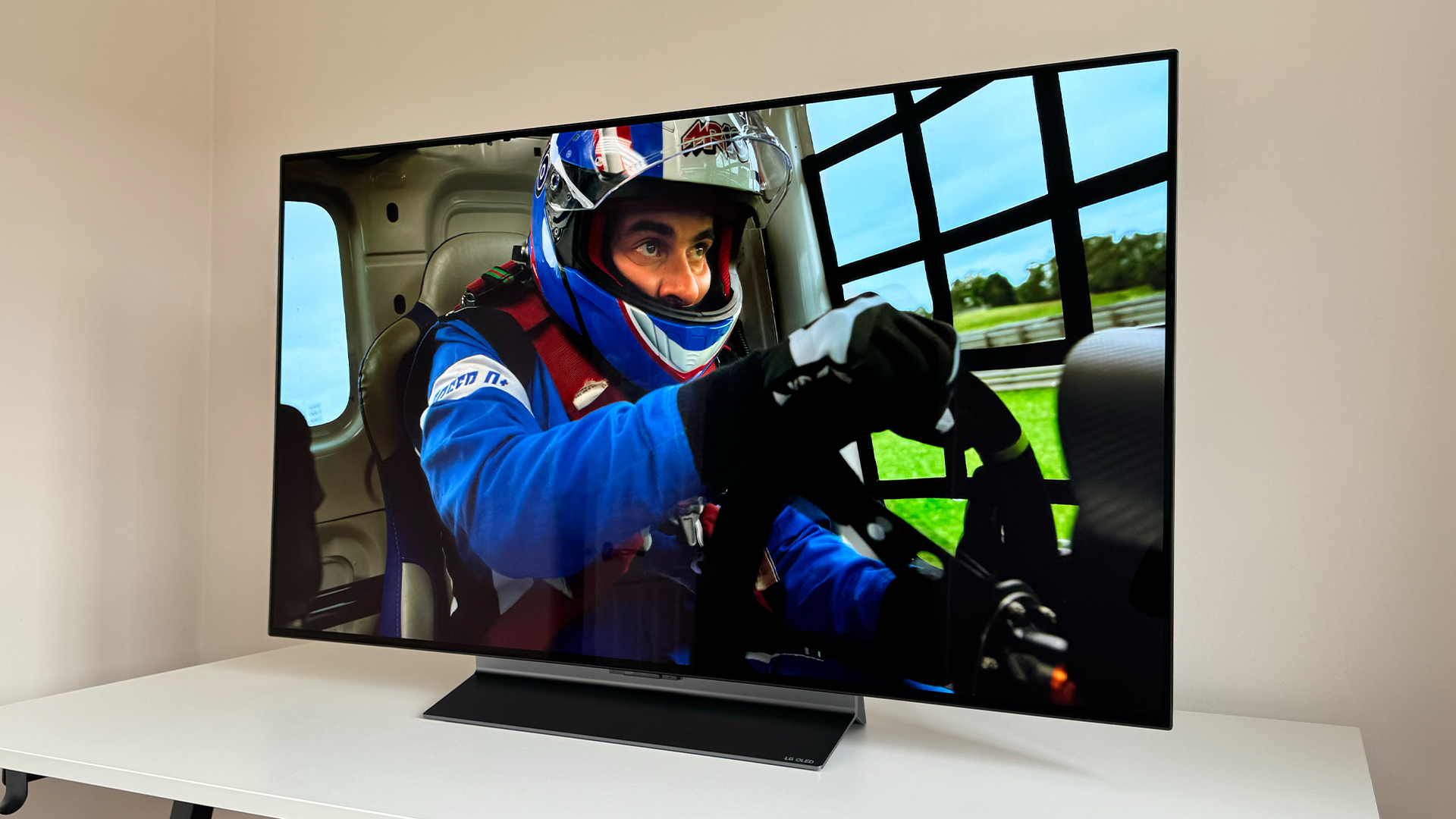
Kicking off with Fast X in Dolby Vision and using the Cinema Home preset, the 48-inch C3 delivers precisely the sort of bold and brassy presentation we’ve come to expect from this year’s C-series models and that you’d hope to get from a Fast And Furious movie. A gold Lamborghini Gallardo shines in the sunlight of Rome with all the subtlety of a laser pointer, but that’s just how it’s supposed to be. The orange paint job of an old-school Alfa Romeo is contrastingly matte in appearance, and skin tones are natural throughout, despite the movie series’ general glossiness.
F&F films are supposed to look crisp and well-defined, and the C3 delivers here, too, producing an image that’s really solid and has a three-dimensional feel. In fact, the increased pixel density of having a 4K resolution squeezed into a 48-inch space means this smaller C3 looks significantly sharper than its 65-inch sibling.
Also contributing to the solidity of the image is the C3’s awesome contrast. As discussed, OLEDs this size can’t go as bright as their bigger brothers, but the inky blacks of OLED plus the C3’s particularly bold approach make for an image that’s packed with punch. This boldness with blacks does mean that the C3 reveals marginally less shadow detail than some TVs in its class, but that’s less of a criticism and more of an observation of the slightly different but just as valid approach.
The C3 is consistently capable as we move to other Dolby Vision movies and then switch to HDR10, and that’s testament to the accuracy of the set’s presets. Choose Dolby Vision Cinema Home or Cinema for Dolby Vision content and Filmmaker Mode for everything else and you’re more or less sorted, though you will want to experiment with the TruMotion setting as the C3 lacks the sort of Goldilocks ‘just right’ motion processing option that you’d find on a Sony set such as the A90K. That isn’t to say that the C3’s motion processing is poor – just that you have to choose between very slightly exaggerated processing and a little blur and judder. Click here for a few further simple LG C3 setup tips.
Drop down from 4K HDR to 1080p SDR and the C3 comes up trumps again, delivering a really clean and balanced picture that’s sharp without looking enhanced.
Sound
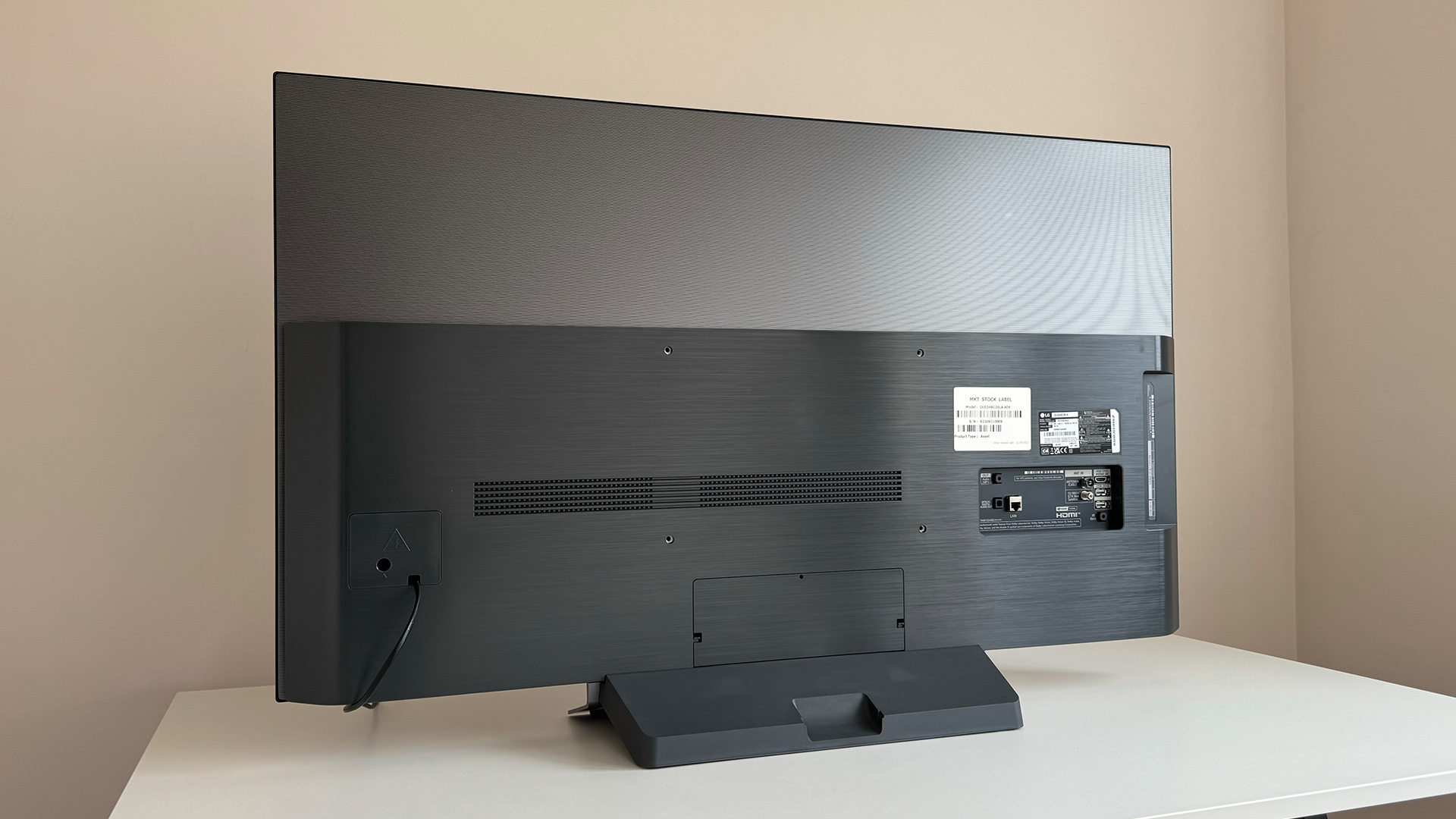
Our key criticism of the 65-inch and 42-inch versions of the C3 has been sound quality, mostly on account of the dullness of their deliveries. Interestingly, the 48-inch C3 actually sounds a little more upfront and engaging than its siblings did when we reviewed them, with a little more punch to effects and a degree of dynamic range.
However, it's all too easy to provoke the set into bassy distortion that's horribly distracting, and the presentation is often cluttered and uncultured. LG just can't seem to get the sound right with its TVs.
That said, with fairly straightforward fare, the C3 sounds perfectly clear, and it's also capable of sending effects beyond the screen's edges when required. Still, though, a soundbar is a must if you want sound that gets even close to matching the quality of the picture.
Verdict
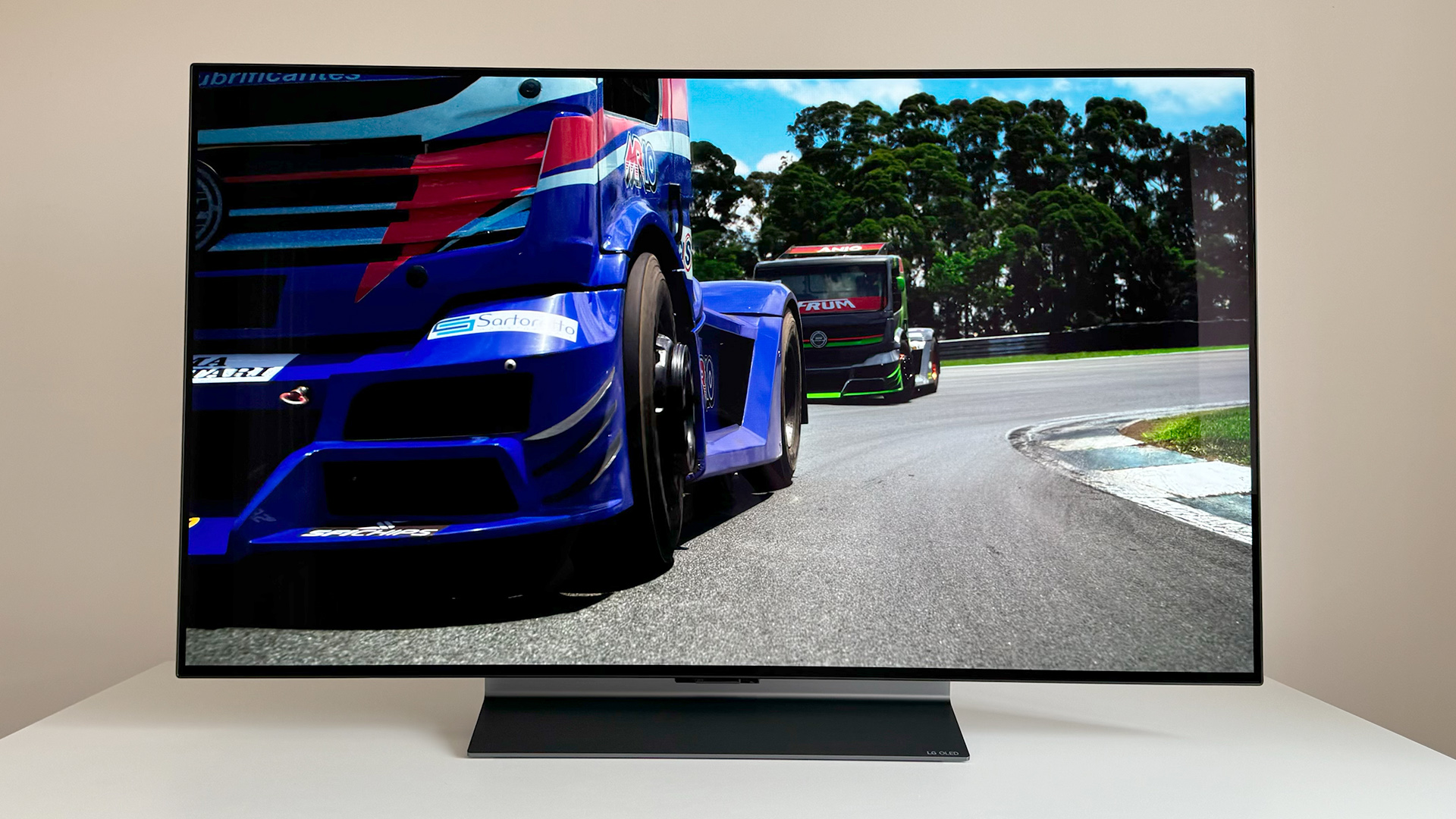
The 48-inch C3 isn’t markedly different to the C2 it replaces, and at its launch price, that might have been a problem. However, a few months and several discounts into its life, the OLED48C3 looks like excellent value and is notably short of serious challengers.
With new 48-inch OLED TVs on the way from Panasonic and Philips, there soon could be new challengers that UK buyers should consider, but until then the C3 is quite comfortably the best 48-inch TV you can buy.
SCORES
- Picture 5
- Sound 3
- Features 5
MORE:
Read our review of the Sony XR-48A90K
Also consider the LG OLED42C3
Tom Parsons has been writing about TV, AV and hi-fi products (not to mention plenty of other 'gadgets' and even cars) for over 15 years. He began his career as What Hi-Fi?'s Staff Writer and is now the TV and AV Editor. In between, he worked as Reviews Editor and then Deputy Editor at Stuff, and over the years has had his work featured in publications such as T3, The Telegraph and Louder. He's also appeared on BBC News, BBC World Service, BBC Radio 4 and Sky Swipe. In his spare time Tom is a runner and gamer.
- Ketan BharadiaTechnical Editor
